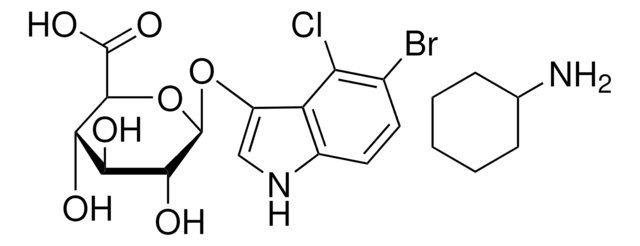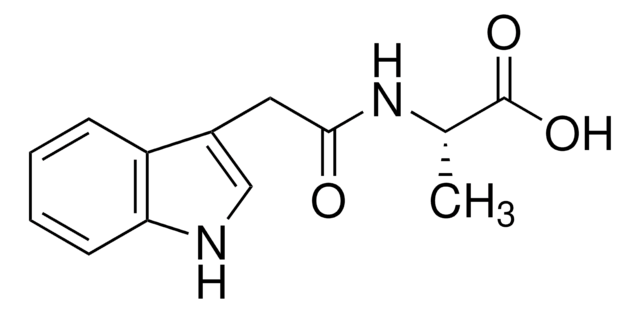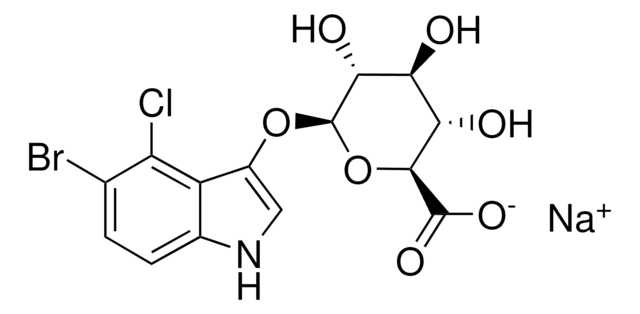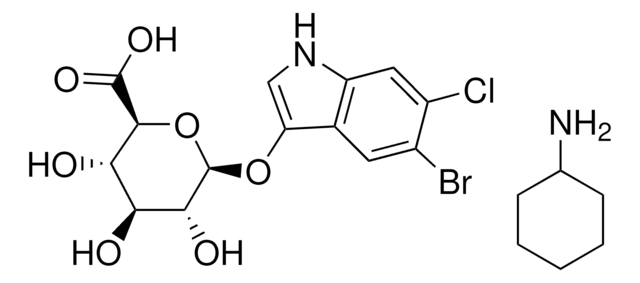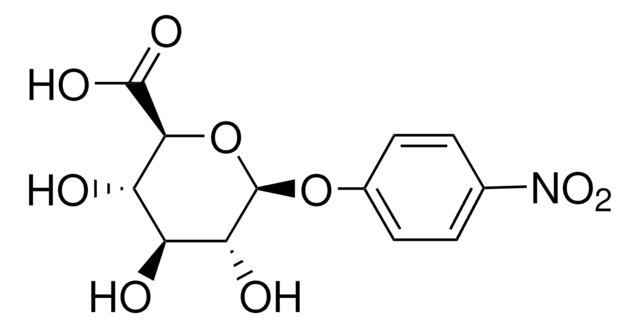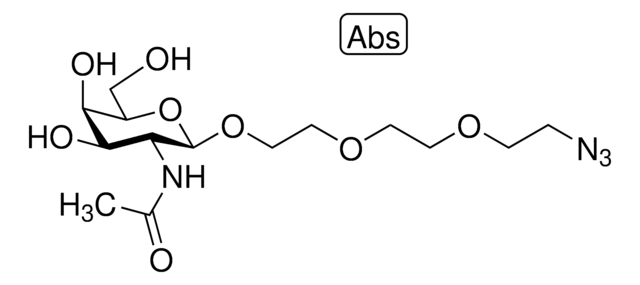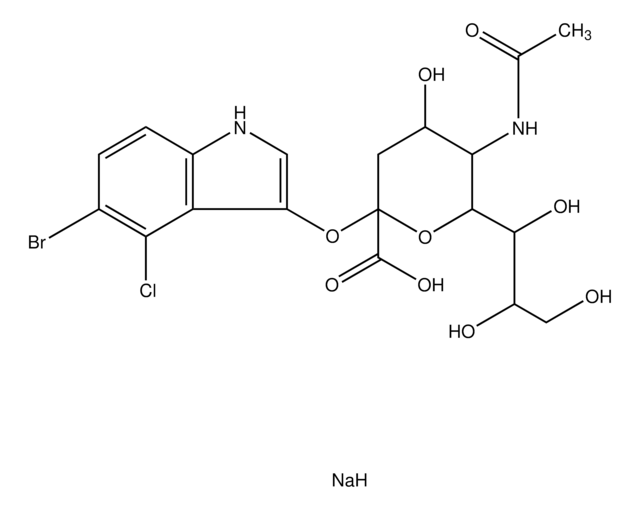907316
GlcA-ABP
95%
Synonym(e):
(2S,3S,4S,5R,6S)-6-(2-(difluoromethyl)-4-(hex-5-ynamido)phenoxy)-3,4,5-trihydroxytetrahydro-2H-pyran-2-carboxylic acid, Glucuronic acid activity-based probe, Glucuronidated metabolite mimic
About This Item
Empfohlene Produkte
Assay
95%
Form
solid
Lagertemp.
−20°C
Anwendung
Currently in gut microbiome research, access to and differentiation between subpopulations and their relationships to host biochemistry is a challenge. Functional and chemical approaches such as those with GlcA-ABP provide a complementary tool to gene sequencing.
Ähnliches Produkt
Lagerklassenschlüssel
11 - Combustible Solids
WGK
WGK 3
Flammpunkt (°F)
Not applicable
Flammpunkt (°C)
Not applicable
Analysenzertifikate (COA)
Suchen Sie nach Analysenzertifikate (COA), indem Sie die Lot-/Chargennummer des Produkts eingeben. Lot- und Chargennummern sind auf dem Produktetikett hinter den Wörtern ‘Lot’ oder ‘Batch’ (Lot oder Charge) zu finden.
Besitzen Sie dieses Produkt bereits?
In der Dokumentenbibliothek finden Sie die Dokumentation zu den Produkten, die Sie kürzlich erworben haben.
Unser Team von Wissenschaftlern verfügt über Erfahrung in allen Forschungsbereichen einschließlich Life Science, Materialwissenschaften, chemischer Synthese, Chromatographie, Analytik und vielen mehr..
Setzen Sie sich mit dem technischen Dienst in Verbindung.